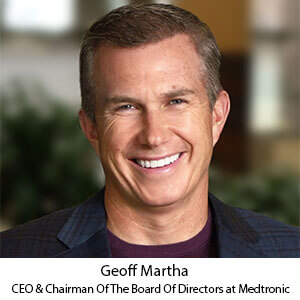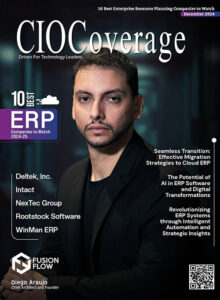 Today, anyone with a smart device can utilize AI to become an artist, study for graduate school exams, monitor their wellness, or explore new cities like a local. The possibilities are endless, but as history has shown with all technological advancements, new challenges inevitably arise.
Today, anyone with a smart device can utilize AI to become an artist, study for graduate school exams, monitor their wellness, or explore new cities like a local. The possibilities are endless, but as history has shown with all technological advancements, new challenges inevitably arise.
In healthcare, AI is revolutionizing every facet of the industry, from electronic health records to patient care, and from provider education to the very medical devices Medtronic produces. A recent Medtronic survey revealed optimism among Americans, with many anticipating that AI will bring significant improvements to healthcare as early as this year. While the potential of AI in healthcare is enormous, it’s crucial to navigate the associated risks carefully. In a field where patient safety, the integrity of medical technologies, and the protection of sensitive data are paramount, the healthcare industry must adopt AI responsibly, ensuring that its application is guided by more than just enthusiasm or speculative trends.
At Medtronic, we believe that combining state-of-the-art innovations with insights into human biology unlocks immense potential for advancing medical technology. By harnessing these synergies, we’re working to achieve the Triple Aim of healthcare: enhancing the patient experience, improving population health, and reducing costs. With that goal, Medtronic is actively working to integrate the power of AI to transform our product portfolio. I’m inspired by our efforts and am excited to share a few examples of AI-driven products that are already empowering healthcare providers and enhancing patient outcomes.
Let’s start with GI Genius™. The Centers for Disease Control and Prevention (CDC) reported that in 2020, there were more than 125,000 newly diagnosed cases of colorectal cancer. Additionally, in the same year, the disease claimed the lives of over 50,000 people. Despite these numbers, accurately diagnosing colorectal cancer remains a significant challenge, even for experienced physicians who may conduct upwards of ten procedures daily. In fact, there is a 12.4% reduction in detection between morning and afternoon procedures and a 26% miss rate for polyps. Enter Medtronic Gastrointestinal GI Genius™ Intelligent Endoscopy Module, powered by AI, the first-to-market computer-aided polyp detection system that provides real-time detection assistance. Our team trained this device on 13 million polyp images from 20 centers and has achieved a 99.7% sensitivity rate with less than 1% false positives. This product is a testament to the collaborative spirit we bring to innovation having been developed by Cosmo Pharmaceuticals and features technologies by NVIDIA, whose ongoing partnership continues to benefit its development. Since its introduction to the market, GI Genius has had a significant impact by reducing missed polyps, ultimately decreasing the likelihood of their progression to cancer.
Another product, Touch Surgery™ Enterprise, represents a significant leap forward in the realm of digital surgery. It empowers healthcare providers and enhances patient outcomes by streamlining and optimizing surgical processes. This platform connects surgical devices and systems, offering robust data analytics, real-time insights, and actionable information. It enables remote collaboration, breaking geographical barriers, and enhancing safety through data-driven decision-making. By connecting surgical instruments, imaging devices, and data sources to a centralized platform, Touch Surgery™ Enterprise offers valuable insights, facilitates collaboration among surgical teams, and serves as a valuable training tool for aspiring surgeons.
And finally, our state-of-the-art Hugo™ RAS System, a groundbreaking solution aimed at overcoming cost and utilization barriers in minimally invasive surgery. Through the integration of Digital Surgery with AI, we’re offering a “driver’s assist” to local surgeons, granting them access to the expertise of the world’s leading surgeons. This innovative approach enables the identification of vital structures, furnishes information that may not be visible or known to the user and minimizes or eradicates human error, ultimately enhancing surgical outcomes and diminishing variability.
The impact of AI-driven transformation goes beyond these three examples. It’s reshaping the patient’s care journey and creating a comprehensive ecosystem of care. Picture a world where healthcare access isn’t dependent on geographic location or socio-economic status. A world where expertise is harnessed to enhance the capabilities of clinicians around the world, and capacity constraints fade away. A world where devices seamlessly integrate as hubs of valuable insights, benefiting both clinicians and patients.
Together, we can establish insight-driven care as the new standard, delivering high-quality, personalized treatments that lead to improved outcomes. World-class care for patients should be the rule, not the exception. Realizing this vision won’t be without its challenges, but then again, the most worthwhile endeavors never are.














